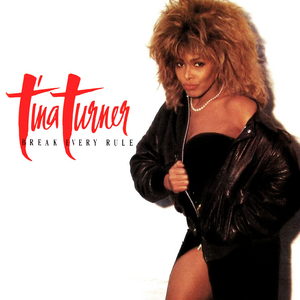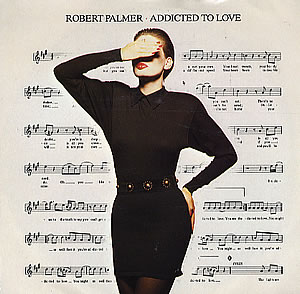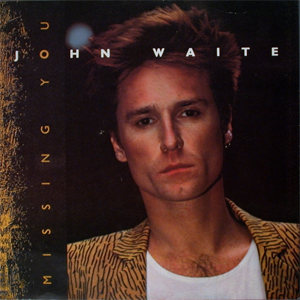
"What's Love Got to Do with It" is a song written by Graham Lyle and Terry Britten, and recorded by Tina Turner for her fifth studio album, Private Dancer (1984). Capitol Records released it as a single from Private Dancer in May 1984 and it eventually became Turner's biggest-selling single.
"It Takes Two" is a hit single recorded in late 1965 by American singer-songwriter Marvin Gaye and American soul singer Kim Weston for Motown's Tamla label.

"River Deep – Mountain High" is a song by Ike & Tina Turner released on Philles Records as the title track to their 1966 studio album. Produced by Phil Spector and written by Spector, Jeff Barry and Ellie Greenwich. Rolling Stone ranked "River Deep – Mountain High" No. 33 on their list of the 500 Greatest Songs of All Time. NME ranked it No. 37 on their list of the 500 Greatest Songs of All Time. The Rock and Roll Hall of Fame added it to the list of the 500 Songs That Shaped Rock and Roll. The song was inducted into the Grammy Hall of Fame in 1999.

"On My Own" is a duet by American singers Patti LaBelle and Michael McDonald. It was written and produced by Burt Bacharach and his then-wife Carole Bayer Sager and originally recorded by singer Dionne Warwick for inclusion on her album Friends (1985). The song was eventually recorded by LaBelle and McDonald for her eighth studio album, Winner in You (1986). It was released as the album's lead single on March 22, 1986, by MCA Records. Lyrically, "On My Own" was based on a relationship that had reached its end with both parties going their separate ways in a melancholy state with the occasional option of coming back together again one day.

"Proud Mary" is a song by American rock band Creedence Clearwater Revival, written by vocalist and lead guitarist John Fogerty. It was released as a single in January 1969 by Fantasy Records and on the band's second studio album, Bayou Country. The song became a major hit in the United States, peaking at No. 2 on the Billboard Hot 100 in March 1969, the first of five singles to peak at No. 2 for the group.

"Nutbush City Limits" is a semi-autobiographical song written by Tina Turner which commemorates her rural hometown of Nutbush in Haywood County, Tennessee, United States. Originally released as a single on United Artists Records in August 1973, it is one of the last hits that husband-wife R&B duo Ike & Tina Turner released together.

Break Every Rule is the sixth solo studio album by Tina Turner. It was released on September 8, 1986, through Capitol Records. It was the follow-up to Turner's globally successful comeback album, Private Dancer, released two years earlier. Turner nearly scored her second Billboard Hot 100 number one with the lead single "Typical Male", peaking at number two for three consecutive weeks in October 1986, while "Two People" and "What You Get Is What You See" reached the top 20. "Back Where You Started" earned Turner her third consecutive Grammy Award for Best Rock Vocal Performance, Female in 1987. It is her first solo album of original songs.

"Private Dancer" is a song first released and made famous by Tina Turner in 1984. The song was written by Mark Knopfler of Dire Straits, but never fully recorded or released by his band. Turner's recording was produced by John Carter for her fifth solo album of the same name and released as the album's fifth single. The track reached number seven on the US Billboard Hot 100 and number three on the US R&B chart. The song had moderate international success, reaching number 26 on the UK Singles Chart.

"Addicted to Love" is a song by English rock singer Robert Palmer released in 1986. It is the third song on Palmer's eighth studio album Riptide (1985) and was released as its second single. The single version is a shorter edit of the full-length album version.

"Easy Lover" is a song performed by Philip Bailey of the band Earth, Wind & Fire and Phil Collins of the band Genesis, jointly written and composed by Bailey, Collins, and Nathan East. The song appears on Bailey's solo album, Chinese Wall. Collins has performed the song in his live concerts, and it appears on both his 1990 album, Serious Hits... Live!, and his 1998 compilation album, ...Hits. It is Bailey's only US Top 40 hit as a solo artist.

"Broken Wings" is a 1985 song recorded by American pop rock band Mr. Mister. It was released in June 1985 as the lead single from their second album Welcome to the Real World. The song peaked at number one on the Billboard Hot 100 in December 1985, where it remained for two weeks. It was released as the band was just about to embark on a US tour opening for Tina Turner. "Broken Wings" became the first of two consecutive number ones of the band on the American charts, the other chart-topper being "Kyrie". Outside of the United States, "Broken Wings" topped the charts in Canada, peaked within the top ten of the charts in Australia, Belgium (Flanders), the Netherlands, Norway, the Republic of Ireland, Switzerland, the United Kingdom and West Germany, and the top twenty of the charts in Austria, New Zealand, Spain and Sweden.

"Missing You" is a song co-written and recorded by English musician John Waite. It was released in June 1984 as the lead single from his second album, No Brakes (1984). It reached number one on Billboard's Album Rock Tracks and on the Hot 100, as well as number 9 on the UK Singles Chart. "Missing You" was the only record in 1984 to spend only a single week at the top of the Hot 100. The song was nominated for the 1985 Best Pop Vocal Performance Male Grammy Award.

"Star Wars Theme/Cantina Band" is a song recorded by Meco, taken from the album Star Wars and Other Galactic Funk. It hit number one on the Billboard Hot 100 on October 1, 1977, holding on to the spot for two weeks and peaked at no. 7 on the UK Singles Chart, remaining in the charts for nine weeks. The single was certified Platinum by the Recording Industry Association of America, having sold a million units.

"Play That Funky Music" is a song written by Rob Parissi and recorded by the band Wild Cherry. The single was the first released by the Cleveland-based Sweet City record label in April 1976 and distributed by Epic Records. The performers on the recording included lead singer Parissi, electric guitarist Bryan Bassett, bassist Allen Wentz, and drummer Ron Beitle, with session players Chuck Berginc, Jack Brndiar (trumpets), and Joe Eckert and Rick Singer (saxes) on the horn riff that runs throughout the song's verses. The single hit No. 1 on the Billboard Hot 100 on September 18, 1976; it was also No. 1 on the Billboard Hot Soul Singles chart. The single was certified platinum by the Recording Industry Association of America for shipments of over 2 million records and eventually sold 2.5 million in the United States alone.
"Don't Turn Around" is a popular song written by Albert Hammond and Diane Warren. It was originally recorded by American singer Tina Turner and released as the B-side to her 1986 hit single "Typical Male". It has since been included on Turner's compilation album The Collected Recordings: Sixties to Nineties (1994), as well as featuring in the Tina musical since 2018.

"I Don't Wanna Fight" is a song by American singer and actress Tina Turner, released in April 1993 by Parlophone. The track was co-written by British singer Lulu, her brother Billy Lawrie, and Steve DuBerry. The song was first offered to singer Sade, who sent it on to Turner. Turner recorded it in 1993 as part of the soundtrack for her autobiographical film, What's Love Got to Do with It. Lulu's version appears as a B-side to her 1993 single "How 'Bout Us" as well as on the 2003 album The Greatest Hits.

"Two People" is a song by recording artist Tina Turner. It was written by Terry Britten and Graham Lyle, with production helmed by the former, and released as the second single from her sixth solo album Break Every Rule (1986).

"What You Get Is What You See" is a song by recording artist Tina Turner from her album Break Every Rule (1986). The 12" single included three versions of the song, the Extended Dance Mix, the Extended Rock Mix and a live version recorded in London in November 1986. A different live recording of the song was later used as the opening track on Turner's 1988 album Tina Live in Europe. She also included it in her 2009 live album Tina Live. It was recorded during Turner's 50th Anniversary Tour. The track is from the March 21, 2009 live show at the GelreDome in Arnhem, Netherlands.

"(Forever) Live and Die" is a 1986 song by the English electronic band Orchestral Manoeuvres in the Dark (OMD), released as the first single from their seventh studio album The Pacific Age. Paul Humphreys sings lead vocals on the track. The single peaked at No. 11 on the UK Singles Chart. It was a top 10 hit in Canada and several European territories, and a top 20 hit in the United States, Australia, New Zealand, and Ireland.

"We Don't Need Another Hero (Thunderdome)" is a song written by Graham Lyle and Terry Britten. It was recorded by American singer Tina Turner for the soundtrack album to the 1985 film Mad Max Beyond Thunderdome, which starred Mel Gibson and Turner. On the heels of Turner's multiplatinum album Private Dancer (1984), the song was released as a 7-inch single, an extended version was released as a 12-inch single and on the film's soundtrack album. In the United Kingdom, a shaped picture disc was also issued. The power ballad received a Golden Globe Award nomination for Best Original Song and a Grammy Award nomination for Best Female Pop Vocal Performance. As songwriters, Lyle and Britten received the Ivor Novello Award for Best Song Musically and Lyrically.


















